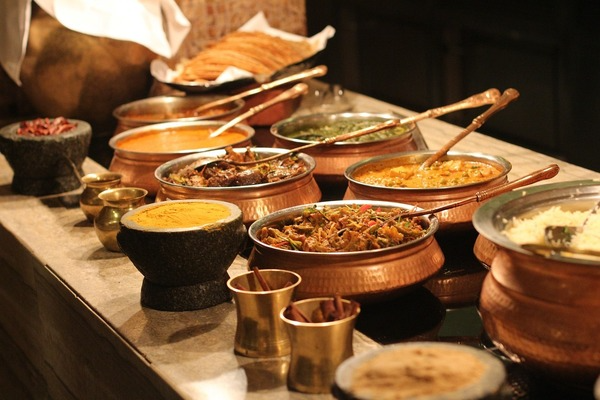Indian Food Nutrition: A Holistic Approach to Nourishing Your Health
- Daily Health
- 4 mins
- February 12, 2024
- Dr Anukalp Prakash
- Detox, Diet
Are you seeking a path to optimal health through your diet? Look no further than Traditional Indian Foods. Recent research has emphasized the significant influence of nutritional balance on general health. But what is a healthy diet exactly?
It involves more than just counting calories; it also entails feeding your body the correct meals in the proper proportions. Greetings from the world of traditional Indian food. This is where a wealth of culinary knowledge has accumulated over time.
Introduction
Many studies show that eating whole foods like those in Indian food can make you live longer and lower your risk of long-term illnesses. Despite this, Indian food is unique because it pays much attention to health. Furthermore, taking care of your body is also essential to focus on your mental and spiritual health. This article will talk about the health benefits of traditional Indian meals. Dr. Anukalp Prakash, senior specialist (gastroenterology) at Gurugram-based Paras Hospitals, believes that Indian food nutrition cuisine is diverse and provides an optimum balanced diet. “The numerous foods, spices, and cuisines native to India make Indian cuisine one of the most nutritious in the world in the Report of Economic Times.
How nutritional balance with traditional Indian foods?
Explore Traditional Indian Foods Nutrition! Traditional Indian foods with nutritional balance like wheat and rice, protein-rich chickpeas and lentils, and colorful spinach and okra are everywhere. Check out how this everyday healthiest food in India and authentic Indian recipes help you eat well.
Grains and Cereals
Besides traditional Indian food, cooking grains and cereals like rice, wheat, and millet are essential for an overall healthy lifestyle. Often, the foundation of Indian meals is that they are rich in fiber, vitamins, and minerals. These grains provide energy and digestive health. Within the doshas and Ayurvedic principles framework, these meals are regarded as balancing agents that enhance general well-being.
Legumes and Pulses
Liven up your diet with Indian food that is good for you, like lentils, chickpeas, and black gram, which are all traditional Indian foods that are healthy. These nutritional balance Indian foods are packed with nutritional components. They enrich a healthy Indian diet with protein, fiber, low calories, vitamins, and minerals. India’s most incredible foods for health are legumes and pulses, rooted in traditional cooking.
Vegetables and Greens (Spinach, Okra, Bitter Gourd)
Vegetables and greens are crucial in traditional Indian food for promoting a well-balanced diet. The foundation of traditional Indian cuisine is nutrient-dense delights that emphasize vegetables like spinach and okra. These greens embody the spirit of holistic nutrition in India and are more than just ingredients; they represent the foundation of a well-rounded diet. Rich in vitamins, minerals, and antioxidants, they enhance physical health and preserve the originality of traditional dishes in India.
Fruits
Fruits are packed with taste and are a vital component of traditional Indian food. From the rich antioxidant content of guavas to the succulent sweetness of mangoes, every mouthful of food is an occasion to celebrate health. Whether eaten as standalone snacks or paired with traditional sweets, fruits offer a natural source of fiber, vitamins, and natural sugars. Savor the pure goodness of these real classic Indian food treasures, which enhance flavor while also supporting the vegetarian philosophy that is at the core of Indian dietary principles.
Balancing Macronutrients
Uncover the art of nutritional balance in the Traditional Indian Food Diet, where Ayurvedic principles and nutrient-rich foods converge for holistic well-being.

Proteins
Proteins, vital for strength and vitality, are thoughtfully incorporated in Traditional Indian Diets. From plant-based sources like lentils to dairy and animal-based options, these Ayurvedic protein choices align with dosha-balancing foods, enhancing the holistic nutrition inherent in authentic Indian recipes and having fewer calories in Indian food.
Carbohydrates
The foundation of energy, carbohydrates, are prioritized in traditional authentic food. Consistent energy is provided by whole grains like brown rice and high-fiber foods like vegetables, which align with Ayurvedic dietary guidelines. This all-encompassing strategy, which has its roots in Indian superfoods, guarantees nourishment and general well-being.
Fats
Navigating the world of fats in nutritional balance foods adds to using healthy cooking oils and incorporating nuts and seeds. Enriched with nutrients, these fats not only elevate the taste of wholesome Indian cooking but also harmonize with Ayurvedic lifestyle choices, contributing to the balance prescribed in traditional meal planning.
Ayurvedic Principles
Ancient knowledge underpins Ayurvedic beliefs and lifestyle, emphasizing the significance of comprehending doshas—individual body energies that impact our overall health by indian food nutrition.
Understanding Doshas:
- Vata: Vata is the element of movement and change, ruled by air and ether. A balanced Vata promotes creativity and vitality.
- Pitta: Fire and water elements define Pitta, embodying transformation and metabolism. A harmonized Pitta fosters intellect and digestion.
- Kapha: Earth and water elements shape Kapha, symbolizing stability and structure. A balanced Kapha supports strength and endurance.
Customizing Diet according to Dosha:
- Vata-pacifying foods: Vata is calmed by warm, filling meals like soups and cooked grains. Incorporating grounding spices aids as dosha-balancing foods.
- Pitta-balancing foods: Cool and hydrating dosha food, such as cucumber and mint, pacify Pitta. Embracing sweet and bitter tastes promotes equilibrium.
- Kapha-soothing foods: Light and warming foods, like spicy dishes and legumes, help balance Kapha. Bitter and astringent tastes support harmony in Kapha dosha.
Incorporating Spices
Elevate the nutrtional balance of traditional Indian food meals by incorporating spices like turmeric, cumin, and more. Beyond adding exquisite flavors, these conventional Indian meal plans contribute to the healthiest food choices. Turmeric, celebrated in golden-hued milk, boasts anti-inflammatory properties, while cumin aids digestion, having a conventional background and adding value to wholesome Indian cooking. Every traditional meal becomes a pleasant and fulfilling experience for your well-being when you discover a symphony of flavors that transcends the calories of Indian cuisine.
Quick Tip: Use Ayurvedic knowledge to improve well-being by starting your day with warm water, lemon juice, and a pinch of turmeric, which acts as an Indian superfood.
If you’re interested in practicing the aforementioned Diet and indian food nutrition under our guidance, feel free to get in touch with us for personalized Diet and Nutrition Consultations and more.
A Word From WG
Wellness Garden is your committed partner in seeking comprehensive natural and holistic therapies to address all your pain and wellness requirements. Our approach encompasses the entirety of your body, mind, and environment, integrating body, mind, and nurture nutrition therapy and various other techniques.
Whether you’re facing physical or mental health concerns, life hurdles, or simply aiming to enhance your overall well-being, we’re here to provide the support you need. Get in touch with us to explore the possibilities and embark on your journey towards holistic therapy and improved health.
- Table of Contents
- • Introduction
- • Traditional Indian Foods
- • Balancing Macronutrients
- • Ayurvedic Principles
- • Incorporating Spices
- • A Word From WG
Recent Posts
Join Our Newsletter
End note from WG Team
Dr. Geetha Kamath
Disclaimer: This information is provided for educational purposes and should not be construed as medical advice. Please consult with healthcare practitioners before undertaking any changes in wellness routines or adding new therapies.
Need Expert Guidance You Can Trust?
Speak to Our Wellness Garden Specialists
Latest Blogs
Check out some of your blogs related to your interest.
- December 14, 2025
- 3 Mins

- December 13, 2025
- Dr. Shai Efrati, M.D.
- 2 Mins

- December 9, 2025
- Dr. Shirley Telles
- 4 Mins
- November 23, 2025
- Dr. Jon Kabat-Zinn
- 3 Mins



